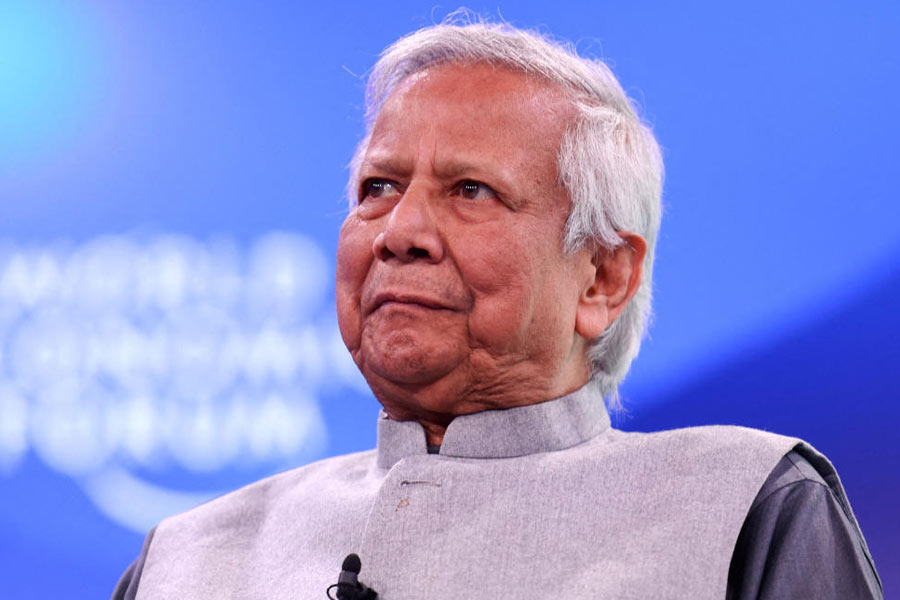 |
Sharmili Basu didn’t anticipate a reaction like this. For quite a while, a stranger had been harassing the 26-year-old employee of a private bank near Garia while she stood at an auto stand late in the evening. When she could bear it no longer and raised an alarm, she was amazed at the reaction of the people who stood around her. If she found it so unbearable, went the general consensus, she should travel by taxi instead of waiting for an autorickshaw.
Calcutta was once hailed as a city that came to the rescue of its people. Stories about ordinary Calcuttans standing up for women being harassed on the streets were like legends. These days, however, the average denizen prefers to look the other way.
Sixty per cent of Calcuttans, says a survey, are indifferent to women being humiliated. Seventy-one per cent of those polled in the Telegraph-Mode survey agreed that a Calcuttan is simply scared to help a woman today.
The latest survey suggests that the position hasn’t changed from what a survey commissioned by this newspaper in 2004 discovered.
Jaya Pandey, a 25-year-old insurance company administrator, would agree with the survey. She has to listen to comments on her dress or her hair every time she walks past a deserted street. And there is nobody to come to her rescue.
The survey, carried out earlier this month, questioned 102 women respondents between the ages of 18 and 30. Sixty-one per cent of the women said they had been casually touched and groped while they were travelling by public transport.
When Rashi Pai, 28-year old chartered accountant, came to Calcutta after living in Delhi and Lucknow, her relatives told her that her new city was a safe place to be in. Her illusions were shattered the day a policeman stopped her while she was returning from work at around 10.30 pm and said, in Bengali, “Who knows whether you were working or having fun.” Says Pai, “Had someone else made a comment like this, I could have complained to the police. But when a law protector himself passes such comments, to whom can I complain?”
Sexual harassment — long trivialised by the oft-used phrase ‘eve teasing’ — tends to get brushed aside by lawmakers, or citizens, as an innocuous problem. Harish Sadani, founder secretary of a Mumbai-based organisation — Men Against Violence and Abuse (MAVA) — stresses that while activities such as rape and domestic violence are taken seriously, harassment on the streets is not.
Shukla Taraphdar, officer in charge (OC), women grievance cell at the Lalbazaar police headquarters, states that even victims of eve teasing rarely report the crime at police stations. There is a law against eve teasing, but few make use of it. Section 509 of the Indian Penal Code (IPC) penalises anybody “insulting the modesty” of a woman with words, gestures, objects and so on. The punishment is rigorous imprisonment for a year or a fine, or both.
The survey endorses Taraphdar’s view that few take this form of harassment seriously. A whopping 91 per cent of the women admitted to not having asked for any help at all when or after they were harassed.
This, Sadani says, is an attitudinal problem. “People do not consider eve teasing an issue and so would rather keep quiet than aggravate the situation.” A girl is considered “good” when she doesn’t respond to catcalls and comments, while someone who seeks to give a befitting reply is typecast as a “bold” and a “bindaas” girl, he adds.
But people like Sharmili Basu don’t believe that legal action is an option. “It is no use lodging a complaint. Eve teasing that may have started as a harmless act of fun for some men may end up with serious consequences if someone complains. It is better to accept what is happening,” she says.
In 2003, fellow colleagues assaulted police sergeant Bapi Sen after he protested against an act of sexual harassment. Sen had to pay with his life for protesting against the misdemeanour.
Says Indrani Sinha, director of programmes, Sanlaap, a non governmental organisation: “Most people would rather be mute spectators than intervene in uncomfortable situations. Plus it is a big responsibility if somebody has to become a witness.”
Sadani, however, believes that unless there is a collective effort by eve teasing victims, bystanders and the law, the problem will never cease to exist. Not raising your voice, he holds, is a form of non-verbal encouragement which prompts the harasser to go further.
Elsewhere, though, efforts are being made to combat what’s essentially a crime against women. Meher Bhargava, the wife of a Uttar Pradesh politician, was killed in broad daylight because she protested when she found some men harassing her daughter-in-law. In response to this incident, three women started The Blank Noise Project — an online and offline project in cities such as Mumbai, Delhi, Bangalore, Chennai and Hyderabad.
Eve teasing, those behind the programme stress, is street sexual harassment. “Say no to leching, touching, staring, groping, passing remarks, pinching, stalking, looking,” their site says. The project also organises walks late in the evening — and women are urged to wear something that they “always wanted to but could not”. The problem, they seek to stress, lies not in the women or what they wear. The menace is the man who can’t take it.
The TELEGRAPH- MODE SURVEY
Have you been touched casually or groped recently while travelling?
Yes: 61
No: 39
Are Calcuttans indifferent to women being humiliated?
Yes: 60
No: 40
Do you think earlier, the number ofCalcuttans coming forward to help women in distress was more?
Yes: 69
No: 31
Are Calcuttans scared to help a woman in distress?
Yes: 71
No: 29
Are women to be blamed for the kind of outfits they wear?
Yes: 68
No: 32
MODE polled 102 people in Calcutta in the age group of 18-30










